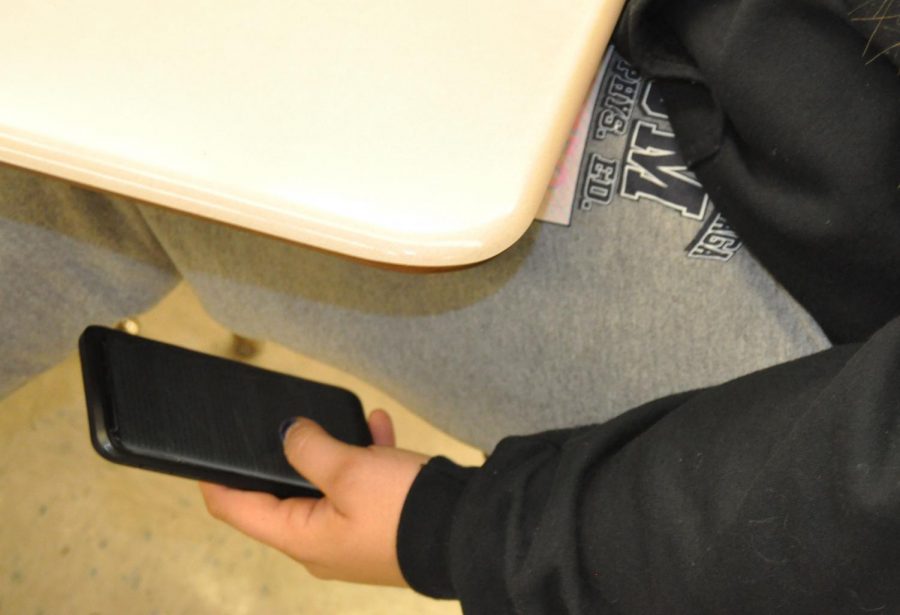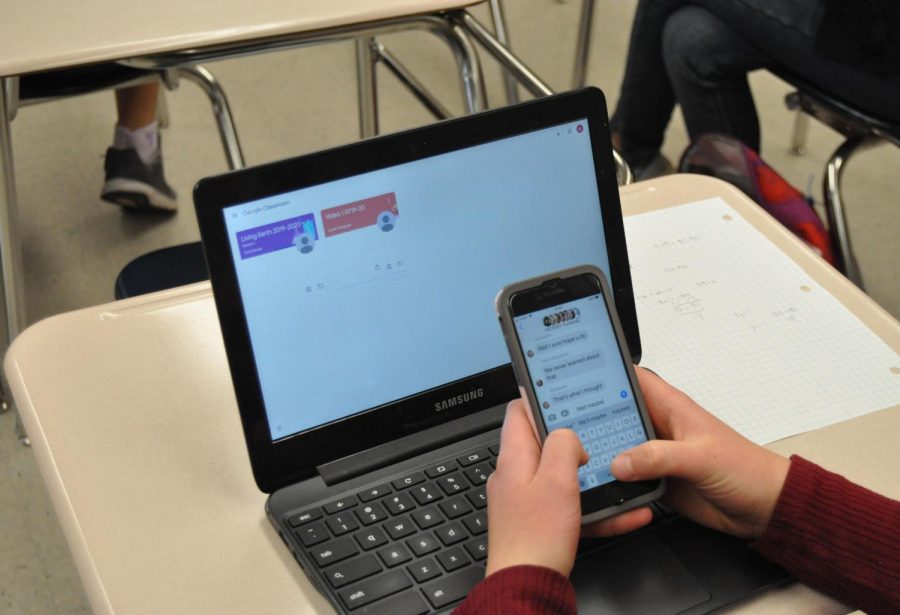Underpaid, Disrespected: Substitutes Deserve Better
January 14, 2020
When students see a substitute teacher sitting behind their teacher’s desk, some take the opportunity to behave poorly. Ignoring instructions, browsing on cellphones, chatting disruptively with friends, or playing games are some of the shenanigans subs endure as they attempt to provide a noble educational service.
“Our teacher always lets us choose our seats!” or “The teacher doesn’t care if we use our phones in class” are typical false claims offered up by unscrupulous pupils as they attempt to throw a proverbial wrench into the lesson plan.
Freshman Hailey Benson admitted that classroom behavior plummets when she and her peers encounter a substitute. “We all just do whatever we want and be as loud as possible. I don’t think anybody really gets anything done,” Benson said.
Social studies teacher Caron Brownlee said that, while reports of disruptive student behavior in the presence of subs may not be frequent, “not as much [classwork gets done] than when [she’s] here.”
It is obvious to students and teachers alike that without the watchful eye of their regular teacher, little work is accomplished. “It’s unfortunate that students wouldn’t take advantage of that class time to complete the assignment,” said associate principal Laura Lee. Not only do disruptive and inattentive students show a lack of respect for their peers, but it seems that they often take advantage of the subs who have to look after them.
Attendance technician Stephanie Sliwinski, who has worked as a substitute in the district for many years, testified to the cruelties students unleash on subs when their regular teacher isn’t in class. “The kids [at Miramonte] were so mean to me, I went home 3 days in a row crying and I never went back to work there ever again,” Sliwinski said.
A memory that sticks with Sliwinski is students walking out when she covered a sports medicine class. “I was telling them they weren’t allowed to leave and they just left anyway, like a big mob of people and I had to call the vice principal, and it was a whole thing,” Sliwinski added.
Substitute teacher Karen Van Der Veer had a similar experience. She was “so disappointed” when a student walked out. “I gave the student an opportunity after, when I saw the student next. I asked what happened. All it would have taken to win me back over would have been some grain of acknowledgement, like an apology even. But it didn’t come,” she said. “That was really disappointing.”
According to Van Der Veer, the offender wound up in detention after she had reported the incident.
However, in Sliwinski’s experience, there wasn’t much follow-up by administrators when she reported the rude or otherwise disrespectful and defiant behavior of students.
Sliwinski’s story is not the only time I have noticed bad behavior being overlooked. In my experience, misbehaving students have not been adequately punished and the cycle of classroom disruptiveness has been allowed to continue.
The severity of the punishments given out by the administration varies, according to Lee. “If there is a specific student who has been disrespectful to a teacher, there will be some consequences. I can’t [say] what exactly those consequences would be, because it’s certainly on a case by case basis,” said Lee.
Having to deal with students behaving badly on a regular basis, it’s no wonder these guest teachers are exhausted and disheartened before the end of their workday.
Adding further insult to injury, the average hourly pay for substitutes is $11.88 while the average hourly pay for a full-time high school teacher is $21.85, according to PayScale. To put this in perspective, the state minimum wage for California is $11.00 per hour, meaning that subs make just above minimum wage for babysitting a room full of misbehaving teens. I know teens who make $20 an hour or more for babysitting just 2 toddlers at a time.
Dealing with the harassment from those they are attempting to serve while receiving little in the way of financial compensation, these saintly substitutes deserve much more respect. The fact that most students are not empathetic to what substitutes face when they fill in for their full-time colleagues is problematic. The fact that those who willfully antagonize substitutes often go unpunished is a crime.
We need to show our subs more respect, and they should feel supported by the administration when they report unacceptable behavior.


